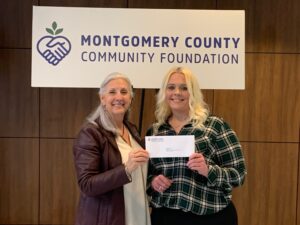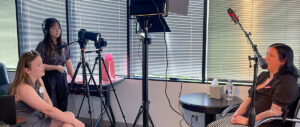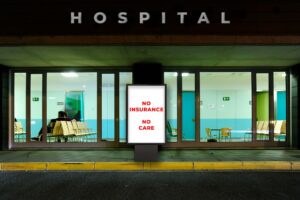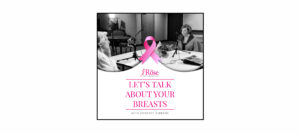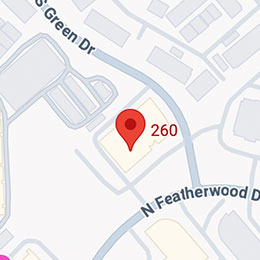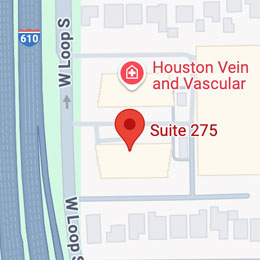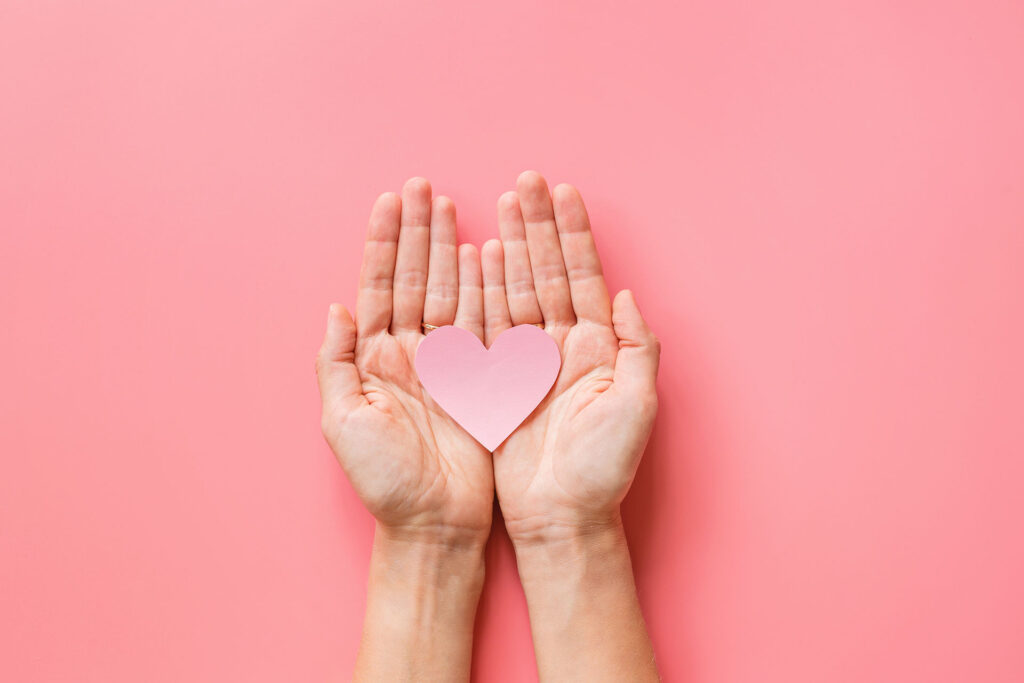Dorothy: [00:00:00] Veronica Muhammad, better known as Roni, knows what it takes to leave one life for another. She’s had to make some tough decisions. She’s found herself divorced and trying to earn a living for her two daughters while going to nursing school full time. She knows what it takes to survive. Finally, in the right relationship and building a new business and a new family, She found herself once again fighting for her life.
The mass in her breast had been there a long time. She had been told it was nothing to worry about. She’d had a biopsy. It had been benign. It could not be cancer after all these years. But it was, Let’s Talk About Your Breast, a different kind of podcast presented to you by the Rose Breast Center of Excellence and a Texas treasure. You’re going to hear frank discussions about tough topics and you’re going to learn why knowing about your breast could [00:01:00] save your life. Join us as we hear another story and we answer those tough questions that you may have.
Veronica: I’m Veronica Mohammed. I go by Roni and I am the co founder of Tranquil Clinical Research. And I’m the chief nursing officer as well. And I’m a mother and wife and…
Dorothy: Many labels. Many labels. And you’re also a breast cancer survivor. Yes. Now, Roni and if I fall into calling you Veronica, don’t worry about it because that’s how I first knew you.
But this type of medicine has been some of your life since you were very, very young. Yes. I mean, how did you get into this?
Veronica: So when I was younger, my parents ran and volunteered with our local emergency medical services and ran on the ambulance. So that was kind of my first, I mean, I love science and, um, I knew a [00:02:00] little bit that I wanted to go into medicine, but I think that’s what really intrigued me and the excitement of, you know, going to a scene.
And of course, as a teenager, riding on an ambulance was, you know, something I was like, yeah, I want to do that. And so that’s kind of what really threw me into. medical career. And then I also started, um, volunteering for the junior EMS shortly after that.
Dorothy: I didn’t even know there was such a thing as a junior EMS, but it makes total sense.
Veronica: Yeah.
Dorothy: And from there, once you were certified and all that, then you went into nursing?
Veronica: So originally, um, after graduating high school, I went to, I was in Virginia, went to college in Richmond and I wanted to go into physical therapy. So I started there and then ended up getting pregnant and getting married and took five years off of college.
And that’s how I ended up in Texas. My husband at the time got a job here. Uh, after getting out of the military and I went through a divorce [00:03:00] and then I had known EMS and so then I went ahead and started going back to school for my EMT to run EMS again and from there I wanted to go and be a nurse. I dreamed of being a doctor but I ended up being a single mom and this seemed like a a career that I could excel in and love.
Dorothy: Yeah, but you didn’t just excel, you were raising your girls. Um, girls, two girls,
Veronica: I have, I have four girls.
Dorothy: Okay.
Veronica: Uh, yeah.
Dorothy: At that time.
Veronica: Yeah.
Dorothy: You had one or two.
Veronica: So at the time when I was going through nursing school, I had two young children. I, I came from an abusive family and abusive previous marriage and was completely alone in a state where I knew nobody and, um, went, put myself through school during the day at the University of Texas.
And you had to go to school full time for nursing. There was no other way. And then I worked as an ER tech, um, at Memorial Hermann in the [00:04:00] Med Center. And, um, was the single mom. So, school during the day, worked at night, and raising two children alone.
Dorothy: Wow.
Veronica: Yeah,
Dorothy: so. Wow, that had to be tough. But you were determined.
Veronica: Very determined. Very, very determined. I had, I had to provide for my kids. And at the time I was making 7 an hour working as a tech. And I knew. There was no way I could, you know, continue to survive and support my children on that. So I wrote a letter about, an essay about my life and won a scholarship, full scholarship to UT and got myself through school and graduated with honors in 2000.
Dorothy: Congratulations, that is a great story. Now along the way, when did you decide to go into neural nursing? And
Veronica: so my last year of nursing school, I got a call and one of my clinicals saying that my, um, my mother was found unresponsive in Virginia [00:05:00] and, um, was being life flighted and she ended up having grade four subarachnoid hemorrhage, which is basically a subarachnoid hemorrhagic or bleeding stroke.
And she at the time was a 911 dispatcher near Washington D. C. So I of course went to Virginia and helped care for her. She was flown to Charlottesville U. V. A. Hospital. And after that and her surviving, um, and I knew after finishing nursing school, I wanted to be in emergency medicine and that just changed it because I wanted to learn more about neuro and I knew what it was like to be a family member with somebody who had a neurological, a devastating neurological event and I wanted to give back, and I actually ended up moving, we ended up moving to Virginia, and I went to that same hospital, worked there, and I worked with the surgeon who operated on my mom and saved her life.
[00:06:00] So just having that and then the rest of my career was, you know, primarily I’m a neurotrauma expert, um, but I’ve done everything, every type of ICU, critical care, educator, mentor, trainee. Everything from there. And I started my first clinical research job at UVA.
Dorothy: Now, mom’s okay?
Veronica: My mom is okay. She has very little, she has some, you know, balance issues.
Um, but it’s unusual and miraculous that she survives such a severe, uh, hemorrhage with very little deficits. I mean, and, and that’s the thing about neuro. I mean, when you have a neuro, injury, whether it’s a stroke or traumatic injury from like a car accident or something. Most of these patients who have something like that happen to them, they’re never the same again.
They have something wrong, whether they’re quadriplegic or if they, um, can’t move, you know, their arm. [00:07:00] I mean, it’s something, their memories. And it, so it doesn’t… Just affect the patient. It’s the entire unit that’s affected. And I’ve been there. You know, I had to take care of my mom and put her through rehab and being able to have that compassion and understanding of both sides.
I think I could Had a lot to offer and have a lot to offer to all, you know, the entire unit, not just the patients.
Dorothy: So Roni I want you to fast forward now, you know, I’m listening to you and thinking you’ve been a part of trauma or trauma has been a part of your life. Severe trauma for a very long time.
Veronica: Yeah.
Dorothy: So now you’ve remarried and you’ve started another totally different kind of business. Same, same medical, but. And then you had a most surprising incident happen. Tell us about how you found out that you had breast cancer.
Veronica: Yeah, so back, I [00:08:00] think it was in around, around 2001 when I was in Virginia, or maybe 2003, somewhere around there, I was in Virginia and, I, I always got my mammogram.
Um, I mean, this is when I was in my early twenties, always got my mammograms, ultrasounds. And I went, uh, at that time and had my mammogram and they saw a very large mass, which, you know, I went through the whole process. They bring you into a room and it’s scary. And, um, they went ahead and biopsied it and it, came, they said it was fine and it was fibrocystic breast disease.
So since then, up until I was, um, in my forties every year, got my mammogram, got ultrasounds and every year they’d see the biopsy clip clip and say, okay, it’s, it’s the same fibrocystic breast disease, no changes. And then in, um, in 2021, two years ago, I, I went for an [00:09:00] elective surgery to have carpal tunnel syndrome fixed.
And my surgeon at the time was also not just a hand surgeon, but also a plastic surgeon. And I said, well, you know, while I’m under, can you just, you know, um, take this mass that has been in my breasts for years? Uh, and it’s been, it bothers me, you know, sometimes it hurts, it’s big. And he was like, I said, it’s been biopsied before.
And he’s like, you know, okay, I’ll go ahead and do that. And so, um, went for my follow up, post up, follow up, walk into the office and sitting on the chair, you know, that the examining chair is a box of tissues and I didn’t think anything of it at the time. I moved the tissue over to the side. My husband was with me.
Um, and normally he didn’t even come to my, my appointments with me at that time because we were so busy. And the physician walks in. He looks at my husband Karim and says, I’m glad you’re here. And he’s like, you know, that, um, that mass that was [00:10:00] in your breast that was supposed to be benign. He’s like, it, it actually, the pathology results came back and it, it is breast cancer.
And so…
Dorothy: So devastating is not too strong of a word to use here.
Veronica: Well, yeah, even as a nurse, I mean, you don’t think about it, but you hear the word cancer. And… You automatically think of a death sentence. So here my mind is going in that direction. My husband’s in research mode and I’m just bawling. And, um, the surgeon’s like, you know, it’s, it’s just a miracle that I had just, you asked me to do this and I happened to agree to do it because if I hadn’t.
you know, this may have killed you. And, um, you know, I needed to get into an oncologist right away. And, um, and so
Dorothy: What Stage where you had at that point?
Veronica: I was stage one at the time. So luckily it was, which was surprising since it had been here for so long. Um, so [00:11:00] luckily it was caught early. Um, and also we, you know, we work with physicians.
So I was able to get into MD Anderson. You know, in a few months versus, you know, a year, because there’s a waiting list sometimes. And immediately I had to have a double mastectomy and, and go through the whole process. So it’s, it’s been, you know, tough and an adjustment in the emotional, especially being a nurse.
It was, it was very different.
Dorothy: But you’re a nurse now, you should have known all this stuff, or did you discover you didn’t know?
Veronica: Right. I mean, I think that was, I think I surprised myself because as a nurse, you’re always telling your patients and family members, you know, okay, don’t go on Google, you know, what’s on Google is not, you need to talk to your physicians and get, you know, true information because there’s so much out there that is not accurate.
And so, you know, What do I do? As soon as I hear the word cancer, I’m becoming an expert at Dr. Google. So I’m like, here I am doing the things that I [00:12:00] told everybody else not to do and The fear of the unknown was, to me, almost as heavy as hearing the word cancer. Because it’s like, your mind automatically goes to all this negative stuff.
And then I was like, okay, I’ve got to get my affairs in order. You know, I’ve got two small children. You know, I’ve got to make sure everything’s, you know, in line for when I’m not here. And so, You know, there’s nothing positive when I started doing this, but yeah, it was, it was scary.
Dorothy: Now when you said, uh, affairs in order, did you, did you actually go through that process?
Did you?
Veronica: Yeah, for several weeks after I was diagnosed. Of course, we’re in limbo. We have no idea what stage I was, nothing. And I had had this for years. So I’m thinking this has got to be, you know, everywhere by now. And so, and I had two small children at the time. I had, you know, a three year old and, you know, [00:13:00] I had a 12 year old and my older two older daughters were there and I had grandchildren.
And so I’m like, okay, yeah. First, we had to figure out how to break it to my, you know, almost teenager and the rest of my family. And so that was the first step. And then I had to say, okay, I need to make sure I have my will and everything in order. And it’s hard to think about those things, you know, um, so yeah, going through that and having to even just think of, okay.
the different things that you need to make sure are taken care of. So your family doesn’t have that additional burden to go through. Is.
Dorothy: Did they? Were you surprised at how they responded?
Veronica: No, I kind of, my, of course my kids were, were very upset, especially my, my 12 year old at the time, Sakina, she, she took it very, very hard.
My older two daughters [00:14:00] were in their 20s, almost 30, and they took it hard, but I, you know, they’re older, so they kind of process things differently. And then I also, you know, had to tell my mother and my sister, who is six years younger than me, And her response was, okay, I need to go get checked, you know, so which she did, uh, and luckily she is, has the news so far that she’s okay.
And the other thing is that, you know, I didn’t really have a big history that I knew of, of breast cancer in my family. So um, I later found out that my mom’s sister had recently actually been diagnosed also with breast cancer and was going through chemo. So, it was interesting to kind of learn the different coping mechanisms from the various people in my family as well, so.
Dorothy: Oh yeah. It’s so interesting to me because, as women, we most always first go to the others, even though we’re the ones that is, that are just, you know, struggling with all of this information. And I think you said it right. It’s kind of a horrific time because all of a sudden you’re [00:15:00] faced with this. There could be an end very soon, and I won’t be there to raise these girls.
I won’t be there to see my grandchildren. And besides the fact that you’re trying to figure out what’s going on, what’s the next steps?
Veronica: Yeah, I think I was surprised, too, that my, when I first found out, it wasn’t, my first thoughts weren’t, Oh, woe is me, you know, it was like, Okay. What, what, you know, of course you’re shocked, but then I’m like, okay, I have to make sure everything is okay for my kids and being a nurse too.
I’ve taken care of cancer patients and I’ve taken care of patients that have known their cancer. Of course they have this, you know, I’m going to fight this. I’m going to fight this. And I had actually a neighbor who had that and had that, you know, response. I’m, you know, almost like a denial too because she had twin five year old girls and then, When she passed away, she never told her kids, she never prepared like writing letters and she never thought about any of that because she had that mentality.
I’m going to fight and fight, fight, but I think I learned that [00:16:00] it’s better safe than sorry. And then to pass. And now these young kids probably won’t remember their mom, you know, the way she could have prepared in that way. So That’s how I was thinking it through.
Dorothy: Everyone’s experience is so different.
And one of the things I want to add, and you probably have heard this from some of your doctors, That fibrocystic doesn’t necessarily turn into cancer, but it certainly can hide the cancer for many years. You know, you just don’t even know there’s something else going on. And in your case, it had been biopsied.
In your case, it was like, oh, it’s benign. We’re not going to worry about it. You know, that, that’s just once again, this disease is so insidious. We never know when it’s going to change its mind and become something very, very different and very deadly.
Veronica: Right. Yeah. And then when you do a biopsy, I mean, this was a huge mass in my, in my left breast.
You know, you think of it, a biopsy is just like a hole [00:17:00] punch out of this whole big thing. So even if they’re just taking a portion here and there’s no cancer in that one spot, it could be in another spot. And then, so I, I kind of, every time I hear somebody or, um, meet some of my patients and they say, Oh yeah, I have fibrocystic breast disease.
I’m like, be diligent and keep following up with that. If you feel, even if your gut tells you something else is wrong, be very persistent that you want it checked more thoroughly. And. One of the, the person who does my husband and my hair, my hair. I was talking to her about the same situation what I had gone through and she said, oh, oh, yeah I was told I had fibrocystic breast disease.
Well last year, I said you need to go get checked. Last year she got checked and she had stage 3 breast cancer and she just finished her chemo.
Dorothy: Yeah, that, that being very careful, being very diligent, insisting and if it bothers you absolutely insist that it comes out. I mean, you know, they’re That’s just, uh, one extra precaution to take.[00:18:00]
So now you’ve gone through the surgery.
Veronica: I didn’t have to go through chemo. I’m on hormone suppressing medications and surveillance. for five years. I’m still going through surgeries. I actually just came off medical leave for another surgery for reconstruction. I had to have muscles from my back removed and brought forward to help reconstruct my chest.
Um, and I was positive for some genes to, um, that showed that I was very likely to have developed uterine cancer also. So I had all of that removed. So
Dorothy: good heavens.
Veronica: Yeah. And I still have more surgeries to go. So, you know, it’s, It’s a process.
Dorothy: No matter what, surgeries are hard.
Veronica: Yeah.
Dorothy: Alright, but now this other life that you live, your parallel life here, you know.
is all about clinical research. And tell us about, about the work that you and your husband do.
Veronica: So our company’s name is Tranquil Clinical Research. There’s a funny story about that [00:19:00] is, um, so my daughter, my 12 year old at the time, she’s 15 now. Um, her name is Sakina and in Arabic, that means tranquility.
And so when we first started our company 10 years ago in a bedroom in our house, we were trying to figure out a name and it just seemed natural that we wanted to name it after her with that name. Because again, this is what we want to stand out and become the gold standard for everyone in clinical trials, the patients and how different companies are run and feel tranquil in their Um, in the process that they go through.
So we ended up naming our company after our daughter. And so my husband had been doing clinical research for many, many years. And then me being a nurse, we decided to go ahead and start this company. And so now we’ve expanded and grown from our bedroom in our house. to our offices in Webster, Texas. Our company actually [00:20:00] has two sides.
We’re a clinical research organization and a clinical research site. Um, so we develop and, um, and help produce and, uh, clinical trials, uh, and manage them, uh, both in medical devices and also in new biotech and also new drug development. And then on our site side, We run those trials through doing patients and enrolling different studies.
Um, and then hopefully in drug development, getting them out in the market. And we are a minority owned business. I know I’m Caucasian, but my husband is West Indian from the Caribbean islands. So we are a minority owned business. And in research, you see a lot of participants seem to be more Caucasian. And so we want to, and a lot of people don’t really understand what research is.
And so. Our company reaches out to those minority communities. We, of course, work in our communities to bring more knowledge about research [00:21:00] and encourage patients to participate, um, in these studies. But also, we want to represent research more accurately and, and, and having more of these minority communities.
Um, participate in trials and understand what they’re really about and the significance of what their role is in participating in them. And then this also gives them opportunities that they probably never even knew was available to them.
Dorothy: Okay, so I want you to stay on those two things. So, Roni go back to what exactly is the clinical trial.
I mean, take us through the 101. It always sounds so, uh, intimidating to some people. You know, a clinical trial, what does that mean? And then I want you to talk about how the world benefits from it, but also how the patient may benefit from it. So start with What exactly is a clinical trial? And I know you talked about device and drug.
So even in that, what is the difference?
Veronica: So, in clinical [00:22:00] trials, um, for example, for, for medications, Tylenol. Tylenol couldn’t be approved by the government, uh, the FDA. Unless it went through this rigorous process of clinical trials. So usually first they start out in animals. Um, they test these, these medications and they go through animals.
They find out what the side effects are, what happens, you know, what benefits they see. And sometimes their intent, their target of what the medication they, they want it to. to do has other benefits too. And they’re like, Oh, we see that it’s, you know, helping in this. So it goes through the animal testing.
Then it goes through healthy volunteers where they see, okay, these people don’t have any medical problems. Let’s see, you know, how, how it works in a healthy individual with nothing going on. And then it advances to different phases. They have phase 1, 2, 3, 4, 5 different phases. So they’ll go and have a small portion where they figure out the efficacy of A drug, and then, and the, and, [00:23:00] um, And then they, uh, and they’ll like may do one or two patients and see, and then they’ll go to titrate that medication to see what the maximum dose without any side effects would be.
And that’s how you see, you know, when you say you look on a Tylenol bottle and says, you know, 500 milligrams twice a day. And so that’s where they come up with that. So, cause they know. anything more than that can cause problems. So that’s where they get that guidance. And then it goes to people who have certain disease processes, you know, like pain, they have headaches.
Is it going to, um, through this population? Um, does it have this benefit? Um, and does the benefits outweigh the risks? And so You know, it goes through and then the population might get bigger and bigger and bigger. And then until it finally, if it works, then it gets go to the FDA for approval. And then that’s how it gets out onto the market.
And the same [00:24:00] process goes through devices like they have laser therapy. Now they have these. Robotic devices that work in the O. R. And so they have to go be tested on the this process before they can actually be put into use. So, um, and it’s evidence base. So, you know, it’s tried and tested over and over again.
So it’s not just Oh, I came up with something Let’s just put it on everybody else
Dorothy: It has to be replicated. Replicate.
Veronica: Yeah, and I think that’s why it’s important for us to as a company that you know, certain disease processes affect have found to affect predominantly like Hispanics or african americans. And if you’re not representing those people accurately in that patient population that you’re testing, then you know, is that is the data really accurate?
Um, you know, and our hope is to make sure that through these clinical trials that we’re giving the opportunity. So these disease processes in those populations are [00:25:00] accurately represented and, um, and, and the opportunities are given to these patients to go ahead and, and a lot of these people, people are underserved, they don’t have finances for medical care, and in research, people don’t understand it.
You’re not a guinea pig, which is a lot of times the, the stereotype of when you hear the word research, especially in people that, um, you, you’re getting even better care ahead Then you would have if you were just going to your doctor and getting a checkup every year and then, okay, we need to increase your high blood pressure medicine.
We, you have an entire team that is watching you constantly. You’re getting labs run and a lot of times this is all free. It’s your taking care of it. I mean, we’re taking care of you and you’re getting all these, this free health care. Um, and you’re monitored so much closer than you would just average.
And I mean, especially to underserved people, um, they may not have any health care available to them. So this is the option to them. [00:26:00] And then for cancer like me, um, we have phase one cancer trials. And so these are medications that Um, people who have stage four breast cancer, for example, they’ve exhausted everything else.
So, and that’s the great thing about medicine. We’re evolving and this is how we do these trials. And so now they want to come up with something that all the, all the medications that are approved have now failed this patient. And they think there’s nothing left. Um, a lot of times they’re sent to hospice care, end of life care, and, and Now, through these clinical trials, these are opportunities and hope that, hey, I might be able to help get these drugs passed to be out there and approved for other people to benefit from.
And these are probably, you know, hopefully treatments that can maybe cure cancer, um, but also extend life.
Dorothy: And they may even impact that person. [00:27:00]
Veronica: Person and families.
Dorothy: And families. Right.
Veronica: Yeah. Yeah.
Dorothy: Yeah. So, Roni you know, you think a human being’s a human being. I mean, what, what is this big deal about the different races or different groups?
What? Give me a something, some kind of example about you could do this in one and it would not appear the same as in another. Can you come up with something like that?
Veronica: So, for example, one, um I think really good example is sickle cell anemia. So sickle cell anemia genetically is, um, is, has been found through evidence that is more predominant in African American males.
So, um, Um, you know, through, um, research and understanding disease processes, um, and that’s not necessarily a clinical trial, but, um, you know, but through studying these people, they found that in African Americans in the African American [00:28:00] pop population. Because of their, the way their blood is formed, um, how their red blood cells, you know, what they look like, how they carry oxygen.
Um, it, it occurs more frequently in African Americans than any other population. So, that’s how you know, okay, we need to target these people because hopefully the drug is going to, Um, impact, you know, more, uh, have a bigger impact, um, on these races or genders, um, than normally, um, on, you know, somebody who’s Caucasian female or Caucasian male.
So, you know, it might have a bigger impact on that type of, um, situation.
Dorothy: Right. And in the breast cancer world, it’s. Very much the same. And even though we see triple negative in all populations, we see it more in our black populations. So it’s, and younger, and all those other things that can seem so confusing when you’re going through a, a [00:29:00] experience with breast cancer.
Veronica: Well, in breast cancer, you know, you think of it as a female problem, right? And it’s not. It’s in males too. So, um,
Dorothy: And yet we still don’t have anything that treats males. That’s right. We’re treating them just like females, which is, has always been our big issue about, you know, how many women were treated just like men for different kind of diseases that really wasn’t effective.
Veronica: Right.
Dorothy: Really didn’t have the same, um, you know, benefit on, on them as it did. So how interesting so things you’re doing right now could impact people Decades from now.
Veronica: Yes. I mean think think about it What would you do if you had a headache and you could take ibuprofen? I mean, this is how those drugs got on the market and And to, I think, to reassure people that participate in research trials that they’re getting exceptional care, they have a team watching them, not just, you know, [00:30:00] you go to the doctor and that’s it.
So you have an entire team that is not just, you know, doing lab work or that really genuinely cares for you and not, and in addition to that, you’re making a difference in the medical field and hopefully the treatments of populations in the future for millions and millions of people because you’re participating in getting this drug approved on the market and available as a standard of care.
Um, and opportunity for people with various disease processes.
Dorothy: Right.
Veronica: Yeah. And even in us, like our cancer patients, you know, our team where I think we are very unique that we focus on wellness, like entire wellness. It’s, you know, you walk into our office. We have a warming. As soon as you walk in, there’s a warmth there.
We have this huge lobby where there’s couches and [00:31:00] you’re greeted and there’s a, uh, area for snacks and refrigerator. And, um, it’s, it’s that hominess, you know, it’s not like walking into an emergency room bay, you know, and there’s little, you know, cause
Dorothy: there is nothing clinical looking about, about your center.
It’s so inviting.
Veronica: Yeah.
Dorothy: Yeah. And everyone there seems to know the patient.
Veronica: Right.
Dorothy: I mean, it is, it’s like you’re walking into a big family.
Veronica: Yeah, and we, we bond with our patients. So, we’ve had patients on our trials, um, with stage 4 breast cancer. And… Um, they have told us while they’re getting treated, you know, this has been such an amazing experience and I wouldn’t have had it any other way.
I can’t imagine just going to the doctor or doing this somewhere else because the warmth that she felt, um, was incredible. And she ended up passing away sadly. Um, her husband is [00:32:00] actually a pastor and came back and is like, we will never forget you. The impact and the warmth that you showed, um, not only her but the entire family.
Um, was amazing and indispensable. And so just hearing that, and of course we cry and we bond with all of our patients and, um, that quality of life that we gave to her, even though she passed away. But in those last, you know, months, you know, she, she didn’t feel like elaborate. She didn’t feel like, you know, this loss of hope, like I’m dying.
She, we gave her hope. We gave her kindness. We gave her warmth. She And that is how the end of our life was. And, and so to us, that’s what we want. That’s what we want people to feel.
Dorothy: Right, and that’s such a gift. To know that, yes, you may be facing the end, but at least during those, those last months, you’re doing something [00:33:00] that’s gonna very well be beneficial to many people to come.
That’s gotta be… Very comforting and in so many ways plus knowing that there may be hope for your own self So anything else that you want, you know, I always want to ask our guests. What is it? Okay, think about this You are you’ve died and it’s 50 years past your death. What do you want to look back and see that you left?
Veronica: So I’ve actually thought about that. I’m actually reading a book and it was talking about Imagine yourself, if you are attending your own funeral and people were coming in and getting ready to do your eulogy, what is it that you would want them to remember you and by and talk about? And so I was like, wow, that is so profound, you know, and, um, you know, for me, yeah.
I would want my grandchildren and my children to be empowered and have the [00:34:00] strength to overcome adversities. You know, here I was, coming from, you know, a teenager, leaving home, being in one abusive relationship after another. Um, being a single mom, putting herself through school, um, with, alone, very much alone.
And then, Overcoming all of these things, being the first to graduate in my family with honors from college, um, being a successful nurse and meeting the love of my life and being able to start a company that can give back. And I hope that we have created an example to my Children to live by. And not only that, be the gold standard for all clinical trials and for these patients of what they should expect when they participate and and be the future, hopefully for amazing medication and therapies that will hopefully cure, you know, some of these diseases.
And we were part of that. And [00:35:00] The families become our families and and that’s what we want them to know is that, you know, you’re not just a stranger that walked into another thing that you are a family.
Dorothy: Well, I certainly think you show that and what a legacy to be able to leave to know that whatever you’re doing right now could impact so many in the future.
Veronica: Yeah.
Dorothy: Thank you so much for being with us today and for sharing and, you know, I think all that you said about clinical trials is so important. We, we must understand how important they are to the future to all of us and, and do whatever we can to be sure that those communities that are not represented are.
It’s such a big job ahead and yet it can be done. As long as we are intent on doing it. And I think that’s what, uh, tranquil clinical research is all about. And it sounds like what you’re all about. So thank you [00:36:00] again for being with us. And I’m sure we’re going to have you back because you’re going to have some exciting things that y’all discovered and oh, that would be,
Veronica: I would love that.
Dorothy: That would be wonderful.
Veronica: Yeah. And hopefully people come in. Take an opportunity.
Dorothy: And they can tour anytime, right?
Veronica: Absolutely. We’re located in Webster. We would love to have people. We’re actually expanding to a phase one unit where it’ll be 24 hours a day. So we’re very excited. So absolutely.
Dorothy: So Roni’s information will be on the website and if you want to reach out to her then you can do it there.
All right.
Veronica: Thank you so much.
Dorothy: So that wraps it up for today. And don’t forget, we’re doing a episode every single day. You’re going to get your daily dose of let’s talk about your breasts during the month of October.
Post Credit: October is the month of pink. And for The Rose, a Breast Center of Excellence, that means we’ll be airing podcasts every day in October to celebrate Breast Cancer Awareness Month.
We’ll be sharing everything from men who have had breast cancer to what happens when you are pregnant and diagnosed with cancer. Be [00:37:00] sure to share with family and friends, because there’s a little something for everyone. To find out ways to help The Rose, visit our website at therose.org. Remember, self care is not selfish.
It’s essential.

